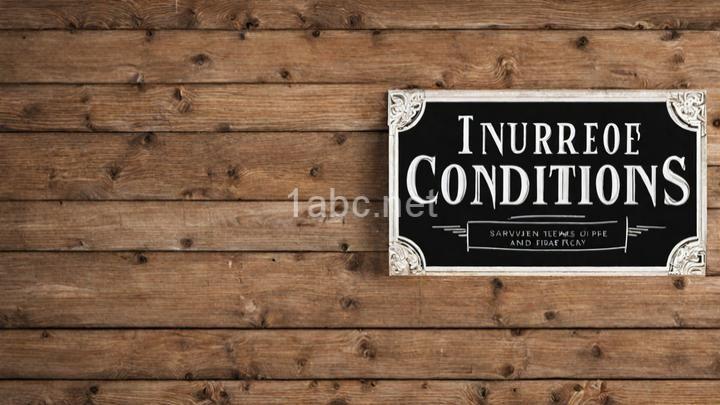Real-Life Stories: How Personal and Life Insurance Policies Have Protected Families in Times of Crisis

Introduction:
Hey there, reader! Welcome to our blog post where we're going to dive deep into the world of personal and life insurance policies and how they have played a crucial role in safeguarding families during difficult times. Insurance might not be the most exciting topic, but trust us, the stories we're about to share will show you just how important it is to have the right coverage when life throws unexpected challenges our way. So grab a cup of coffee and let's get started!
I. Story 1: The Smith Family's Journey Through Crisis
Let's start off with a heartwarming anecdote about the Smith family. John and Sarah Smith were living a comfortable life with their two children, Emma and Ethan. However, their world was turned upside down when John was diagnosed with a rare form of cancer. The news rocked their family, emotionally and financially.
Fortunately, John had taken out a comprehensive life insurance policy years ago. This policy not only provided a financial safety net for his family in the event of his death but also offered critical illness coverage. As John underwent treatment, the insurance policy helped cover the mounting medical expenses, ensuring that the family didn't have to worry about the financial burden in addition to their emotional turmoil.
The emotional impact of John's illness was undeniable, but having the right insurance coverage eased some of the financial stress. The policy allowed Sarah to take time off work to care for John and provide emotional support to their children without the added worry of lost income. Despite the challenges they faced, the Smith family found solace in knowing that they were protected by their insurance policy.
II. Key Benefits of Personal and Life Insurance Policies
Now that we've seen how insurance made a difference in the Smith family's life, let's explore the key benefits provided by personal and life insurance policies.
Personal Insurance: Personal insurance policies encompass a range of coverage options, including health insurance, disability insurance, and long-term care insurance. These policies offer financial protection in times of illness, injury, or disability. Health insurance, for example, helps cover medical expenses, ensuring that families can access the necessary healthcare without worrying about the cost. Disability insurance provides income replacement if an individual is unable to work due to an injury or disability, offering stability during challenging times. Long-term care insurance assists with the costs associated with nursing homes or in-home care for those who require assistance in their daily activities.
Life Insurance: Life insurance policies serve as a safety net for families in the event of the policyholder's death. They provide a lump-sum payout to beneficiaries, which can be used to cover funeral expenses, pay off outstanding debts, replace lost income, or support the family's financial future. Additionally, some life insurance policies offer critical illness coverage, providing financial support if the policyholder is diagnosed with a specific illness or medical condition.
III. Story 2: The Johnsons' Triumph Over Adversity
Let's shift our focus to another inspiring real-life story, shall we? Meet the Johnsons. Lisa Johnson, a single mother of two, found herself facing a major crisis when she lost her job due to company downsizing. With no steady income, Lisa struggled to make ends meet and feared losing her home.
Luckily, Lisa had taken the wise step of purchasing personal insurance that included unemployment coverage. This coverage provided Lisa with a portion of her previous income while she searched for a new job, allowing her to continue providing for her children and keeping a roof over their heads. The insurance policy acted as a lifeline during a challenging period, demonstrating the power of having the right coverage in place.
IV. Tips for Choosing Suitable Insurance Coverage
After hearing these compelling stories, you might be wondering how to choose the best insurance coverage for yourself and your family. Here are a few tips to help you navigate the insurance landscape:
- Assess Your Needs: Start by evaluating your unique circumstances, including your age, health condition, and financial responsibilities. Consider factors such as the number of dependents, outstanding debts, and future goals. This assessment will help you determine which types and amounts of coverage are appropriate for you.
- Seek Expert Guidance: Insurance can be complex, so don't hesitate to reach out to reputable insurance agents or brokers who can guide you through the various options available. These professionals can help tailor a policy to fit your specific needs, ensuring you have the right coverage in place.
- Explore Policy Options: Familiarize yourself with the different types of personal and life insurance policies. Research the benefits provided by each policy type and understand how they align with your needs. Don't forget to compare premiums, coverage limits, and exclusions to make an informed decision.
V. Conclusion
In conclusion, personal and life insurance policies play a vital role in protecting families during times of crisis. The real-life stories we shared today highlighted the emotional impact and positive outcomes that arise from having adequate insurance coverage. Whether it's facing medical challenges or dealing with unexpected job loss, having the right insurance can bring stability, peace of mind, and financial security to families in need.
So, dear reader, take a moment to evaluate your own situation. Ensure that you have suitable insurance coverage in place to protect your loved ones when life takes an unexpected turn. Don't wait until it's too late. Let these stories serve as a reminder of the importance of personal and life insurance policies in safeguarding your family's future. Stay protected, and may your journey be filled with love, resilience, and financial security.
FREQUENTLY ASKED QUESTIONS
What is Real-Life Stories?
Real-Life Stories refers to narratives or accounts of events, experiences, or situations that have occurred in the real world. These stories are typically based on true events and involve real people and their interactions. Real-Life Stories can cover a wide range of topics and can be found in various forms such as books, articles, documentaries, movies, and podcasts. They often provide insight, emotions, and viewpoints of individuals, making them relatable and engaging for audiences.
How can personal and life insurance policies protect families in times of crisis?
Personal and life insurance policies can provide crucial financial protection for families during times of crisis. Here's how they can help:
- Income Replacement: In the event of the policyholder's death, life insurance can provide a lump-sum payment to their beneficiaries. This payout can help replace the lost income, ensuring that the family's financial needs are covered.
- Debt Repayment: If the insured passes away, life insurance proceeds can be used to pay off any outstanding debts, such as a mortgage, car loan, or credit card debt. This can prevent the family from being burdened with debts they cannot afford to repay.
- Covering Funeral Expenses: Funerals can be expensive, and unexpected funeral costs can put a strain on a family's finances. Life insurance can help cover these costs, easing the financial burden on the family during an already difficult time.
- College Tuition and Education: Life insurance policies can ensure that children's education expenses are covered even if the primary breadwinner is no longer there to provide for them. The payout from a life insurance policy can be used to fund college tuition fees or other educational expenses.
- Medical Expenses: Some types of life insurance, such as critical illness or health-related policies, offer coverage for medical expenses in the event of a serious illness or disability. This can provide financial support to the insured and their family during challenging times.
Overall, personal and life insurance policies provide peace of mind for families, knowing that they are protected from financial hardships in times of crisis. It is important to review and choose the right insurance coverage based on individual needs and circumstances.
Why is it important to have insurance coverage?
Insurance coverage is important for several reasons:
- Risk Management: Insurance helps individuals and businesses manage various types of risks. It provides a financial safety net in the event of unexpected events, such as accidents, natural disasters, or illness.
- Financial Protection: Insurance coverage protects against financial losses that could be damaging or even catastrophic. For example, health insurance can cover medical expenses, while auto insurance can cover repair costs or liability claims.
- Peace of Mind: Insurance provides peace of mind, knowing that you are financially protected in case of unforeseen circumstances. It reduces anxiety and allows you to focus on other aspects of life or business without constant worry about potential losses.
- Legal Requirements: In many situations, insurance coverage is mandatory. For instance, auto insurance is often required by law to protect both drivers and third parties. Similarly, businesses may be legally required to have specific insurance coverage to operate or engage in certain activities.
- Protection for Loved Ones: Life insurance provides protection and financial support to loved ones in the event of the policyholder's death. It ensures that dependents are provided for and can maintain their quality of life.
- Promotes Economic Stability: Insurance plays a vital role in promoting economic stability. It helps businesses recover from losses, compensates individuals for damages, and fosters financial resilience within communities.
Overall, insurance coverage is essential for mitigating risks, protecting against financial hardships, and providing peace of mind in an unpredictable world.
What types of crises are covered by these insurance policies?
Insurance policies can cover a wide range of crises. The specific types of crises that are covered depend on the type of insurance policy. Here are some common types of crises that may be covered by insurance:
- Property insurance: This typically covers crises such as fire, theft, natural disasters (such as earthquakes, floods, and hurricanes), vandalism, and damage caused by accidents.
- Health insurance: This covers medical crises such as illness, injury, hospitalization, and surgery. It may also cover emergency medical care, prescription drugs, and preventative services.
- Auto insurance: This covers crises related to automobile accidents, theft, vandalism, and damage caused by weather events.
- Life insurance: This provides financial support to the beneficiaries in the event of the policyholder's death. It can help cover funeral expenses, outstanding debts, and provide financial stability for the family.
- Liability insurance: This covers crises where the policyholder is responsible for causing harm or damage to others. It may cover legal costs and compensation for injuries or damages caused by accidents, negligence, or defamation.
It's important to review the terms and conditions of your specific insurance policy to understand the exact types of crises that are covered. Each policy may have its own coverage limits and exclusions.



